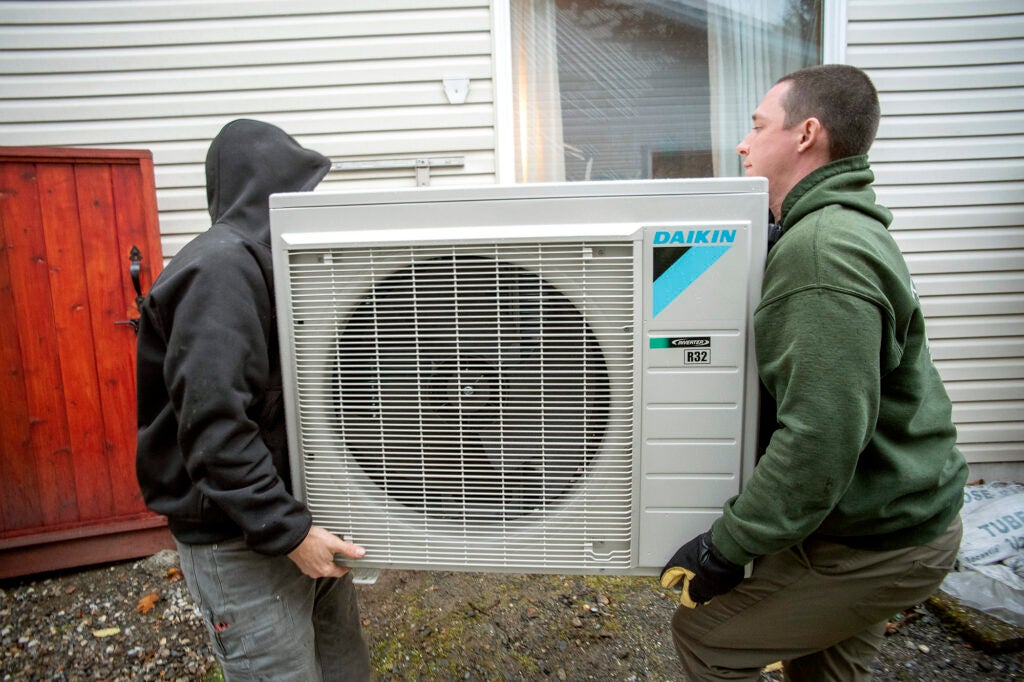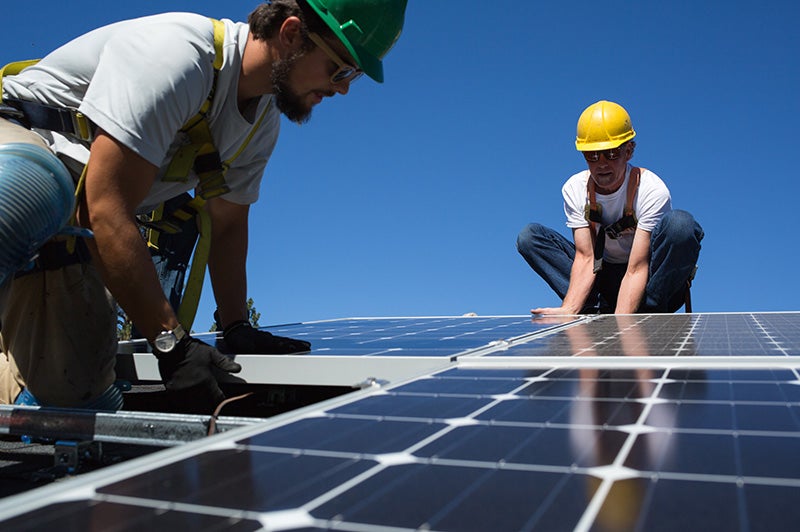A Dishonest Ballot Initiative (I-2066) Threatens to Roll Back Decades of Progress Toward Washington’s Clean Energy Future
Vote no on I-2066 — and help spread the word to protect commonsense measures to clean up our energy systems.
Washington state has rightfully earned a national reputation as a climate leader, nowhere more prominently than in the effort to wean ourselves off fossil fuels by electrifying homes and buildings. State and local governments have adopted among the most progressive measures in the country to incentivize efficiency and electrification, and our Climate Commitment Act provides millions of dollars in funding to help clean up Washington’s building sector.
Now, however, because of a dangerous and misguided initiative — Initiative 2066 — on Washington’s ballot this November, all that progress is in jeopardy. The measure is bankrolled by a rich gadfly and the building and fossil fuel industries, and we must fight it like our state’s future depends on it — because it does. If Initiative 2066 passes, it would roll back the clock on decades on our collective hard work, including years of hard-earned litigation and legislative victories, to ensure a clean energy future for Washington.
Here’s what the initiative does, and why it’s so important.
First, I-2066 would repeal parts of HB 1589, a new policy just passed by the Washington legislature last year to help the state’s largest utility, Puget Sound Energy (PSE), plan to phase fossil fuels out of homes and businesses. Washington has mandated that the state drastically reduce its greenhouse gas emissions and transition to clean energy. HB 1589 does nothing more than call for utility planning to help us achieve those goals in a fair and cost-effective way.
Earthjustice and our partners worked hard to pass HB 1589. It certainly didn’t contain everything we wanted, but the result was a commonsense policy to at least get started planning the clean energy transition. Without it, utilities will still need to shrink gas pipelines with fewer and fewer customers — certainly the people who can least afford it — bearing spiraling costs of an outdated system.
Second, I-2066 would gut our state’s progressive and hard-won building energy codes, which are among some of the best in the nation. These codes incentivize the cleanest and most efficient ways of keeping our homes warm and safe — which often means electric rather than fossil fuel appliances.
Finally, the initiative also attacks energy efficiency, jeopardizing programs and important customer rebates, which would raise energy costs for Washington families. It would also threaten many city and county programs that offer incentives for electric heat pumps and other clean energy upgrades. Studies show that electrification is not just the cleanest and most efficient approach to meeting home energy needs — it’s also the cheapest. I-2066 would lock us into yesterday’s dirty and inefficient appliances forever.

Workers install a heat pump. (Michael Penn for Earthjustice)
Proponents of I-2066 claim that they are fighting “gas bans.” Let’s be clear — there is no gas ban in Washington nor even any discussion of one. No current or proposed Washington laws, regulations, or codes prohibit people from using natural gas, as supporters of I-2066 falsely claim. Washington’s building electrification policies instead incentivize electrification, promote energy efficiency (which always favors electricity over fossil fuels), and reduces subsidies to grow fossil gas pipelines over wiser investments in clean energy solutions.
It is critical that we continue with this transition towards cleaner and more efficient buildings. Buildings make up a quarter of Washington state’s carbon emissions, polluting more than any other sector except transportation. To reach our state’s climate goals, building decarbonization must be part of the solution. It’s not just our reputation as a clean energy leader that matters — without further progress advancing the transition to clean energy, Washington will become less attractive and even a dangerous place to live, work, and do business. I-2066 promises only climate chaos, skyrocketing energy prices, and unfair energy burdens on our most vulnerable neighbors.
The diverse coalition of organizations, health professionals, unions and small businesses fighting I-2066 is incredibly talented, hard-working, and scrappy. But without a lot of funding, the campaign is relying on grassroots efforts — people like you and me — to help defeat this harmful initiative. That’s why I am urging you to visit their campaign webpage pledge to vote no, and spread the word — and ask 10 friends to do the same. Let’s keep Washington a leader in clean and affordable energy and stop I-2066 from rolling back the clock.
You can follow Jan Hasselman on Twitter/X for more commentary on I-2066.
Established in 1987, Earthjustice's Northwest Regional Office has been at the forefront of many of the most significant legal decisions safeguarding the Pacific Northwest’s imperiled species, ancient forests, and waterways.
Elizabeth Manning
Public Affairs and Communications Strategist, Earthjustice
emanning@earthjustice.org
